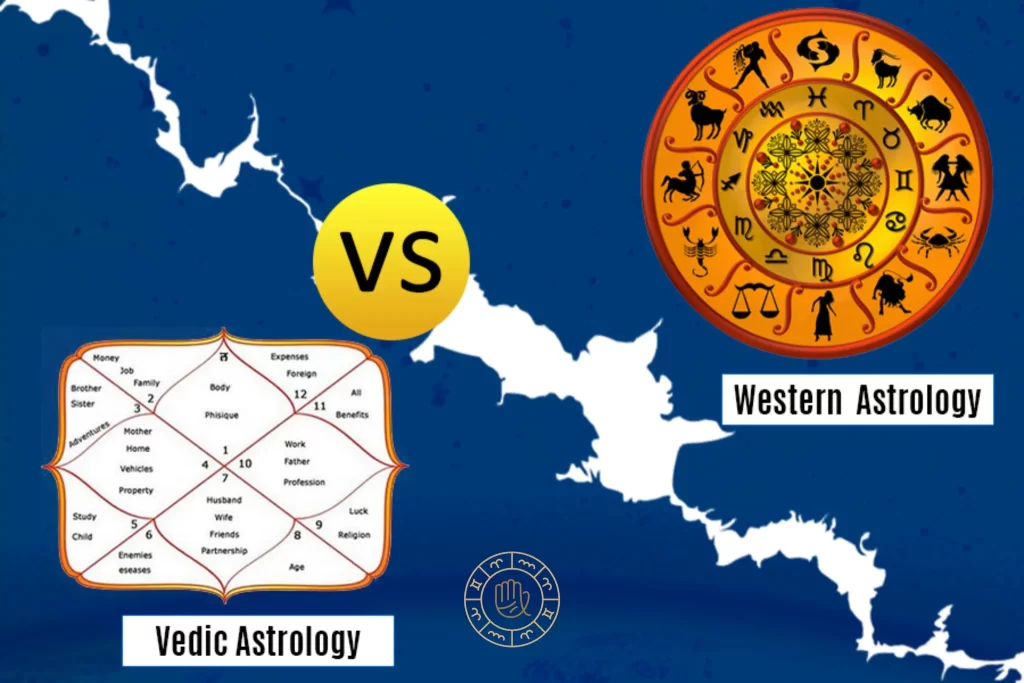
Indian astrology has been around for a long time and has influenced many people worldwide, including in the West. However, as it traveled from India to the West, it changed a bit.
Differences Between Indian and Western Astrology:
- Signs and Constellations:
- In Western astrology, the starting dates of signs may differ from traditional Indian astrology. This is because Western astrology focuses on signs, while Vedic astrology looks at constellations.
- Connection with Philosophy:
Vedic astrology is linked to ancient Vedic philosophy, sharing common fundamentals with Ayurveda and Vastu. It aims to create harmony in life.
- Planets:
Vedic astrology emphasises the Navagraha or nine planets, excluding non-visible planets like Neptune and Uranus. Western astrology considers outer planets. Vedic astrology gives more importance to the rising sign and moon than the sun.
- Nakshatra:
Vedic astrology includes Nakshatras, which are 27 moon signs divided into 4 sections. This concept is absent in Western astrology.
- Remedial Measures:
Vedic astrology believes in the cycle of Karma, offering remedies to improve one’s life by addressing the effects of past Karma. This concept of rebalancing Karma is not prominent in Western astrology.
While Western astrology is not entirely wrong, it differs from the astrology established by the Vedas. At Astrology Matrix our expert in Indian astrology, follows a scientific approach based on Vedic studies.
If you want to seek guidance, consider reaching online astrology consultation and book your appointment today.
Follow us on Instagram for exciting and interesting videos!!



